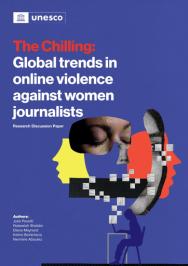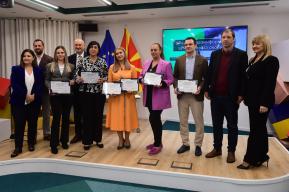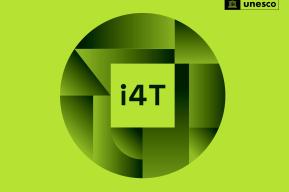Article
UNESCO and ICFJ release new research on online violence against women journalists

The publications, titled What More Can News Organisations Do to Combat Gendered Online Violence? and Assessing Big Tech’s Response to Online Violence Against Women Journalists, address the roles of news organisations and tech companies in tackling online violence and creating a safer online space for women journalists.
They build on the multifaceted and interdisciplinary research conducted over the course of two years by a team of 23 international researchers from 16 countries to provide concrete recommendations to these essential actors. Each chapter provides over 20 recommendations to newsrooms and internet companies respectively to counter online violence against women journalists.
The chapters and their accompanying recommendations set the frame for two sessions at the World Press Freedom Day conference. Julissa Mantilla Falcón, President of the Inter-American Commission on Human Rights, opened the UNESCO/ICFJ session “Newsroom Responses to Online Violence Against Women Journalists”, alongside Tawfik Jelassi, UNESCO's Assistant Director-General for Communication and Information.
It’s not enough to have a gender editor. It’s not enough to have a gender workshop. It’s a whole commitment, it’s a matter of justice. Women are not asking for favours. We are asking for justice.
Then, in conversation with moderator and investigative journalist Kiki Mordi, newsroom leaders Carmen Aristegui (Aristegui Noticias, CNN Español), Glenda Gloria (Rappler), and Branko Brkic (Daily Maverick) discussed the measures that they have taken to protect journalists from gendered online violence and the responses and support they offered when these attacks occurred to journalists in their organizations. Their experiences reinforced the message of Julie Posetti, head researcher of the study and Deputy Vice President, Global Research (ICFJ).
It is a workplace safety issue as much as it is a work safety issue to provide your war correspondents with a flak jacket.
The same day, in the session organized by UNESCO and the Thomson Reuters Foundation, “Developing Effective Tools to counter gender-based online harassment”, panellists discussed practical solutions that tech companies can offer to prevent the consequences of online violence against women journalists and protect victims from these ever more common attacks when they persist. Rocio Jimenez Calderon, Security Incident Handler at Access now revealed that the incidents reported to her organization have increased in number over the past years, including by 25% in 2021.
In this context, Thomson Reuters and Jigsaw presented their new tool TRFilter, an open-source code tool that helps users filter and store hateful messages received on online platforms, beginning with Twitter upon launch in June 2022. Patricia Georgiou, Head of Partnerships and Business Development at Jigsaw weighed in on the importance of moderation – recommended also in The Chilling chapter.
We need moderation to remove some of the layers of toxicity in order to leave room for more voices because sometimes the meanest voices shout the loudest.
The chapters were preceded, in 2021, by The Chilling: Global trends in online violence against women journalists, a discussion paper highlighting the main findings of the study. They are part of the full study, to be launched this year with two big data case studies assessing over 2.5 million social media posts directed at prominent journalists Maria Ressa (The Philippines) and Carole Cadwalladr (UK), 15 detailed country case studies, and a comprehensive bibliography.







